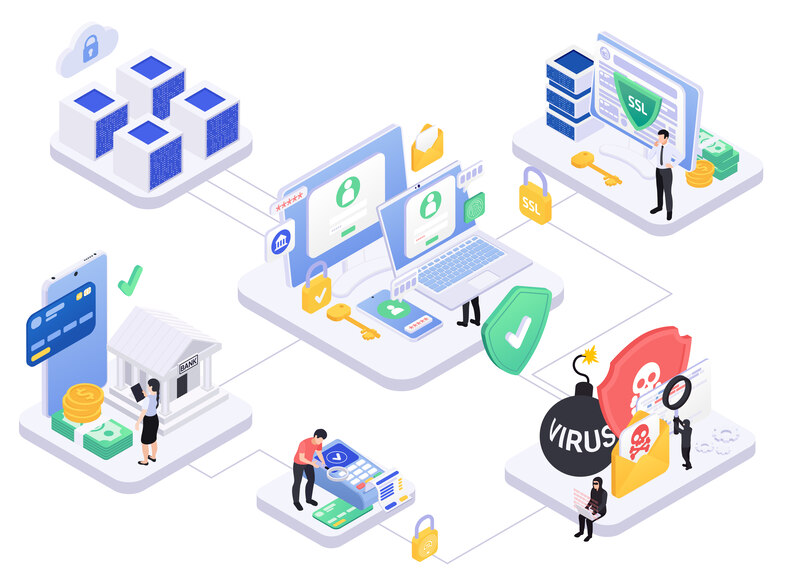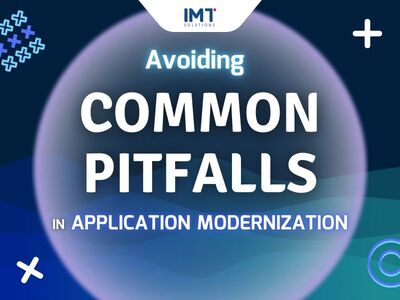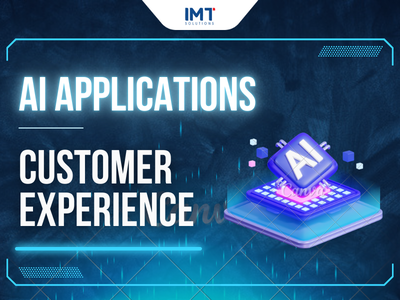HOW API INTEGRATION ENHANCE FINANCIAL SOFTWARE DEVELOPMENT
Have you ever heard about the concept of Application Programming Interface (API) integration? This term has gained significant attention in the global digital transformation landscape. As businesses increasingly adopt digital solutions, API integration has become essential for streamlining processes and enhancing software capabilities. According to reports, over 80% of organizations have experienced increased productivity after utilizing APIs.
In this article, we’ll delve into the definition of this process and explore its key benefits. We’ll particularly focus on how it advances financial software development, where seamless connectivity and data exchange are crucial.
Understanding API integration in business
What is API integration?
API integration connects two or more software systems through APIs, enabling seamless data transfer. APIs are sets of rules and protocols that facilitate communication between different software, ensuring accurate data exchange and collaboration. In simpler terms, think of an API as a user interface. However, it’s designed for software systems, not humans, to interact programmatically. This allows for developing complex applications and automating various processes.

Key features of API integration
Here are some of the key features of this process:
- Real-time data synchronization: API enables software applications to communicate with each other and share data through API calls, which facilitate real-time data synchronization.
- Scalability: As developers do not need to build everything from scratch again from the start, API allows businesses to easily scale up or down based on their demand or changing needs.
- Security: Quality API should be able to secure the data transfer and prevent server exposure while functioning as an intermediary.
- Error handling: API facilitates automation which requires reduced human intervention. This lowers human errors and increases efficiency by automating repetitive tasks.

API Integration in Financial Software Development
In the fintech industry, API integration plays a crucial role in connecting various technologies and services that power financial applications. It is the backbone of many essential fintech innovations, such as mobile banking apps, instant stock trading platforms, and peer-to-peer payment systems.
Benefits of API Integration in Financial Software Development
This process brings many significant benefits for organizations such as:
- Cost-efficiency: By automating processes and streamlining system communication, APIs reduce manual work and lower operational costs. They also cut resources needed for maintenance, automate tasks like transactions and reporting, and minimize errors. This efficiency leads to cost savings and improved service. Additionally, McKinsey notes that the focus of API deployment has shifted from cost reduction to revenue growth for businesses.
- Scalability: This fintech innovation provides financial software with the flexibility to scale easily as business needs grow. New functionalities can be added without significant changes to the existing infrastructure. This modular approach also allows businesses to adapt quickly to changes in regulations, market demands, or customer expectations.
- Improved user experience: By integrating APIs, financial software can offer a more streamlined and user-friendly experience. For example, users can access multiple financial services from a single platform, such as viewing account balances, making payments, or investing in stocks, all within one app. This convenience leads to higher customer satisfaction and retention.
- Reduced human errors: Automating data transfer between systems through APIs drastically lowers the likelihood of human errors, which enhances data accuracy and consistency. This reliability is crucial for maintaining the integrity of financial data and making informed decisions.
- Task automation: APIs efficiently automate repetitive tasks, such as data entry and report generation, which streamlines workflows and frees up employees to concentrate on more complex and strategic activities. This shift not only boosts productivity but also allows businesses to leverage their human resources for tasks that require critical thinking and creativity.

Best practices for API integration
Understanding API integration before implementing
First and foremost, it’s crucial to thoroughly understand the specific API you intend to use. This includes comprehending its capabilities, limitations, and how it aligns with your business needs. You need to ensure your development team is familiar with the API’s structure and the data it handles to avoid potential pitfalls during integration.
Support API versioning
Implementing version control for your APIs ensures backward compatibility and smooth transitions between updates. By maintaining different versions, you allow clients and internal systems to continue operating without disruptions even when new features or changes are introduced. This practice also simplifies the management of deprecated features.
Thorough documentation
Comprehensive documentation is essential for successful integration. It should include detailed explanations of endpoints, request/response formats, authentication methods, error handling, and example use cases. Good documentation reduces integration time, minimizes errors, and supports developers in troubleshooting issues.
Utilize standard protocols
Using standard protocols like REST, SOAP, or GraphQL ensures that your API integration is consistent, secure, and compatible with a wide range of systems. Adhering to established industry standards facilitates easier integration, maintenance, and scalability, while also providing a familiar structure for developers.

Test rigorously
Rigorous testing is critical to ensure that the API functions as expected under various conditions. This includes unit tests, integration tests, and stress tests to identify potential bugs, performance bottlenecks, and security vulnerabilities. Regular testing during development and after deployment ensures reliability and reduces the risk of failures.
Conduct regular security audit
Systems that are integrated via API are often targeted by cyber-attacks, making security audits essential. Regularly reviewing and updating your API’s security measures helps protect sensitive data and maintain compliance with industry regulations. Implementing practices like encryption, authentication, and rate limiting can further enhance security.
Stay updated
APIs and the technologies they rely on are constantly evolving. Staying updated with the latest versions, features, and best practices is essential to maintaining a secure, efficient, and effective integration. Your business needs to regularly review and update your APIs to leverage new improvements and address any emerging vulnerabilities.
Conclusion
Overall, API integration is a crucial component of modern software development, offering significant benefits across various industries, well beyond financial software development. Today, outsourcing API services has become a preferred strategy for companies aiming to leverage specialized expertise and accelerate their development processes. By outsourcing, businesses can focus on their core competencies, ensuring that their API integrations are managed by experts, leading to more efficient and reliable outcomes. For instance, consider how IT outsourcing service can reduce manual invoice processing errors.IMT Solutions has extensive expertise and experience in implementing API integrations across diverse industries. If your business is considering this approach to enhance connectivity and streamline processes, contact us today for a consultation tailored to your specific needs.





